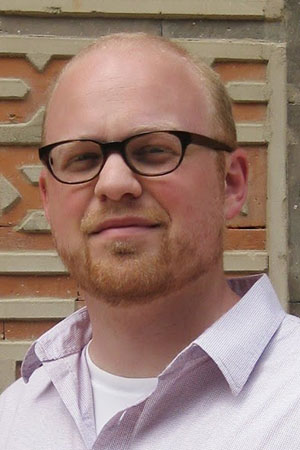Faculty Profile
Erik Love
Associate Professor of Sociology (2009; 2012)Contact Information
Denny Hall
717-245-1225
http://www.eriklove.com
Bio
Erik Love teaches courses on social movements, race and racism, and qualitative methods. He studies civil rights advocacy organizations in the United States. His first book, Islamophobia and Racism in America, was published in 2017. He has presented his research on the efforts of Arab, Muslim, Sikh, and South Asian American advocacy organizations at several academic conferences, in peer-reviewed journals, and he has contributed to a wide range of popular publications. His work has won the support of the National Science Foundation, the Richard Flacks Fund for the Study of Democracy, and Emory University's James Weldon Johnson Center for the Study of Race and Difference. Originally from Detroit, he has traveled widely, including stints studying and working in places like Jerusalem, Cairo, and Kyoto. Erik holds a Ph.D. in Sociology from the University of California at Santa Barbara, where he was a Regents Fellow.
Education
- B.A., Albion College, 2001
- M.A., University of California, Santa Barbara, 2006
- Ph.D., 2011
2025-2026 Academic Year
Fall 2025
SOCI 225 Race and Ethnicity
This course explores the historical and contemporary significance of race and ethnicity in the United States. Students will examine how racial inequality has become a pervasive aspect of U.S. society and why it continues to impact our life chances. We will address race and ethnicity as socio-historical concepts and consider how these “social fictions” (in collusion with gender, class, and sexuality) produce very real material conditions in everyday life. We will develop a theoretical vocabulary for discussing racial stratification by examining concepts such as prejudice, discrimination, systemic/institutional racism, racial formations, and racial hegemony. We will then look closely at colorblind racism, and examine how this dominant ideology naturalizes social inequality. With this framework in place, students will investigate racial stratification in relation to schools, the labor market, the criminal justice system, neighborhood segregation, immigration, etc. Finally, we will discuss strategies of anti-racism that seek to eliminate enduring racial hierarchies. Offered every two years.
MEST 272 Islam and the West
Cross-listed with SOCI 272-01.
SOCI 272 Islam and the West
Cross-listed with MEST 272-01.
MEST 500 Independent Study
Spring 2026
MEST 234 Middle Eastern Am Communities
Cross-listed with SOCI 234-01.
SOCI 234 Middle Eastern Am Communities
Cross-listed with MEST 234-01.
SOCI 270 Soc Mvmts, Protest & Conflict
The study of protest politics and social movements is the study of collective agency. Social movements arise when people act together to promote or resist social change. Movements represent not only grievances on a particular set of issues, but also frustration with more established political forms of making claims in societies. In this course, we will engage with some of the large theoretical debates in the study of social movements, reading both empirical treatments of particular movements and theoretical treatments of key issues. The featured case studies will include civil rights, feminism, ecology, the antinuclear movement, the New Right and the alternative globalization movement. We will be particularly concerned with the social and political context of protest, focusing on basic questions, such as: under what circumstances do social movements emerge? How do dissidents choose political tactics and strategies? And how do movements affect social and political change?
SOCI 313 Structural Racism Amer Transp
Transportation systems-bridges, highways, busses, railways, and more-have developed in the United States in ways that reflect social, cultural, and political histories. The stated goals for improvements or reforms to these systems have aligned with national priorities: enhancing the United States's economic and national standing by enabling safe and efficient transportation of people, goods, and services. These systems have contributed to structural inequalities by systematically excluding certain groups while advancing the interests of other groups. Transportation infrastructure, in short, has been built in ways that reflect the often racist priorities of American elites. This course explores case studies illustrating this pattern. Because improving equality in access to transportation has been a central concern of civil rights advocates for decades, organizations that work on transportation issues are active in nearly every city in the United States. By looking directly at ongoing advocacy strategies and tactics, students learn about interventions in local, regional, and state-level policymaking.
